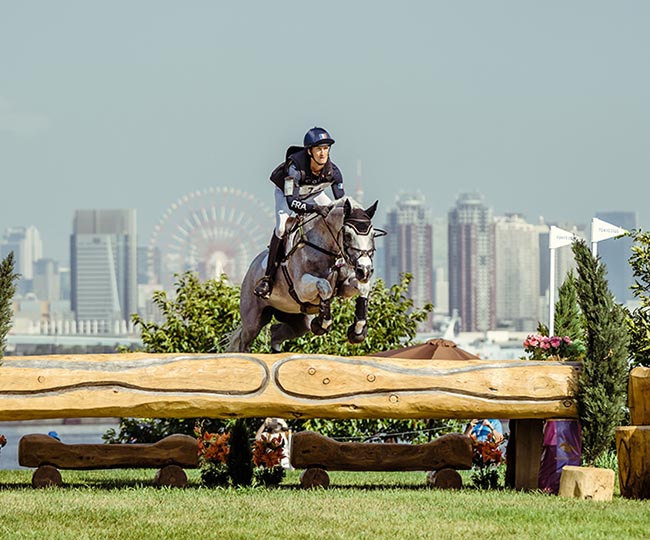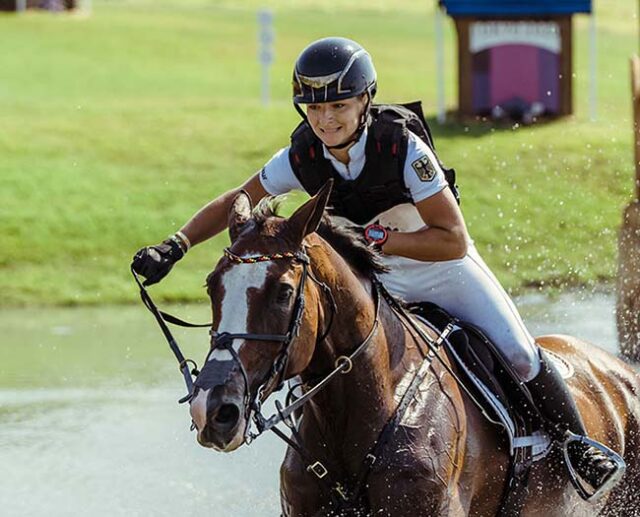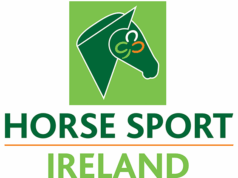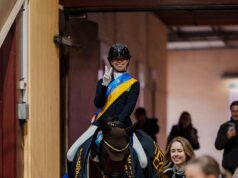By Christopher Hector
Photography: FEI/ Bronkhorst, FEI/ Taniere, FEI/Brinkman
Starting with eventing, Not only did the French eventing team finish with a bronze medal, but the results at the Games were a triumph for the French breeders. Out of the 25 horses to go through to the individual final, eight were French bred.
Toubleu de Rueire (Mr Blue x Bayard d'Elle, breeder Edouard Neuhaus), Triton Fontaine (Gentleman IV x Nightko, Sophie Pelissier Coutureau); Absolut Gold (Grafenstolz x Verglas xx, Philippe Patenotte); Vinci de la Vigne (Esterel des Bois x Duc de Hutrel, Lucien Villotte); and Totem de Brecey (Mylord Carthago x Quoglof Rouge, Jean Muris); then the three medal winners – Vassily des Lassos (Jaguar Mail x Jalienny AA, Jerome Merges); Toledo de Kerser (Diamant de Sémilly x Papillon Rouge, Kerstin Drevet); and Amande de B'Neville (Oscar des Fontaines x Elan de la Cour, Jean-Baptiste Thiebot).
There was more French blood: Imperial van de Holtakkers is by Quidam de Revel out of an Argentinus mare; Colorado Blue is by Jaguar Mail, Don Guidam is by the Quidam de Revel grandson, Quidam; and the Irish-branded Grovine de la Reve is by Hermes de Rêve, a son of showjumping world champion, Quito de Baussy.
The Tokyo Games were also a triumph for the French breeder, Jean-Baptiste Thiebot and his stud, the Haras de B’Néville. At Rio 2016, Thiebot bred the French team gold medallist and individual silver, Piaf de B'Neville (Cap de B’Neville x Reve d’Elle), while in Tokyo he bred the gold medallist, Amande de B'Neville (ridden by Germany’s Julia Krajewski).
Amande is an interesting example of how the borders have come down in sport horse breeding. She is by the Selle Français stallion, Oscar des Fontaines who is by the Danish stallion (and 1m60 superstar) Lando, who is three-quarter Holsteiner, one-eighth Hanoverian, and one-eighth Swedish and out of a mare by the Dutch sire, Mr Blue out of a Selle Français mare by Galoubet A. Amande is out of Perle de B'Neville (by the Grand Veneur son, Vas Y Donc Longane). Amande is the fourth generation of mares in her line to carry the B'Neville suffix.
Back in 2015, I was privileged to travel through France visiting some of the famous eventing breeders, but I was told I was facing a challenge at B'Neville. Jean-Baptiste does not talk, I was told. It must have been my lucky day, because he talked and talked, so much so that I had to hold up my hand to stop him, to let our minder, Elise Bourdin from UNIC, catch up with the translation.
Thiebot’s farm is beautiful, wonderful old stables, a gracious mansion and a lovely garden, but you can see that inside the house is far less important than the exterior. Papers cover almost every available surface, and a microwave seems to have taken over the traditional French kitchen. His friend, Catherine Delpierre, who is helping take care of the visitors, remarks that ‘all Jean-Baptiste cares about is his foals, the rest of his life is not very important.’
It seems Thiebot was headed for the more conventional life of a lawyer, before horses took over: “I was studying law, and I came here for a holiday with my uncles, they had cows and six mares. Before the Selle Français studbook, it was the Anglo-Norman studbook. Here in Normandy there were always a few places with Thoroughbred mares, and these mares were mixed with the Anglo-Norman. This breeding base came from Ireland and the United Kingdom.
“After my law studies, I started to think about the future, and I decided to become a farmer and a horse breeder, so I came back to this farm in Normandy. I started breeding some horses, and it grew, I had eight mares, so it started.”
Q You breed for showjumping rather than eventing because there is more money in showjumping… About 30 years ago, there were as many eventing competitions as there were showjumping, now it is very different. Then the great equestrian families of Normandy – Navet, Leredde and Pignolet – were eventing. Then the direction went to showjumping because you can make a lot of money in showjumping.

Q Will this change after the success of the French eventers at Rio? [pre Tokyo 2020 interview] All the money goes to the bigger showjumping competitions, but I do have two young horses in my stables that I think would be very good for eventing, so I hope that after Rio the market will go up for eventers. Eventing is a wonderful competition – dressage, cross-country, showjumping – I would like to continue to sell horses for eventing, but the reality is sometimes difficult, and I will sell horses for showjumping because I need to live... To read the complete article you need to be a subscriber
CLICK HERE TO SUBSCRIBE TO BREEDING NEWS
SUBSCRIBERS CAN READ THE COMPLETE ARTICLE BY LOGGING IN AND RETURNING TO THIS PAGE




